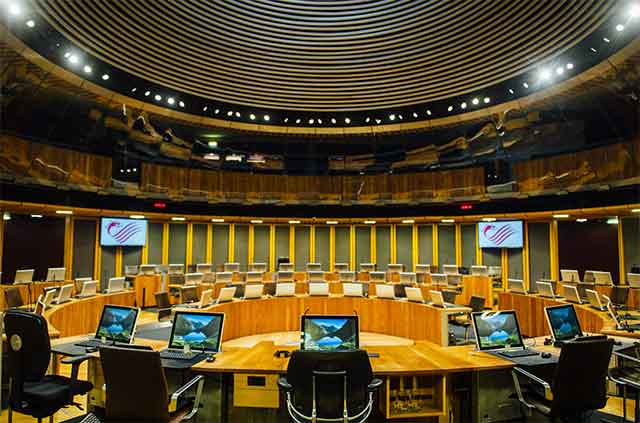Couples seeking fertility treatment in Wales face a postcode lottery in terms of access to services, a Senedd member warned.
James Evans, the Conservatives’ shadow health secretary, said the eligibility criteria for NHS-funded fertility treatments varies across the country.
Mr Evans called for the Welsh Government to standardise the criteria to make sure everyone has equal access to treatment and provide people with greater choice.
He said: “There are notable differences in the fertility treatments offered across different health boards and patients often lack autonomy to choose their preferred treatment centre.”
Mr Evans raised the example of ICSI, a treatment for men with infertility, during health questions in the Senedd on February 12.
‘Left in the dark’
He said: “For those people with low sperm counts, that is the only way in which they can actually access fertility treatments but some centres don’t do that.”
Mr Fox cautioned that male infertility issues are often overlooked despite studies showing that male factors contribute to 30% to 50% of cases in Wales.
He added: “When males are diagnosed… they’re often left in the dark with no support offered to them because most of the treatment services are focused toward the women.
“A lot of those men are left feeling frustrated – they feel shame, they feel anger – because they don’t feel like they get the mental support needed to get through that time in their lives.”
Standing in for health secretary Jeremy Miles, who was ill, Sarah Murphy, the mental health minister, said one in six couples will struggle with infertility.
‘Not ideal’
She explained that the Human Fertilisation and Embryology Authority regulates the NHS and private sector, setting out the treatments and procedures available.
Raising commissioning policy on fertility services, Ms Murphy stressed: “I think it’s really important to emphasise, though, that this is a specialist service.
“It is not something that is provided across every health board.”
Ms Murphy pointed to services provided in clinics in Cardiff and Swansea, adding: “I understand completely that there will be people out there where this is not ideal, I do.”
She told the Senedd: “There absolutely shouldn’t be any shame or stigma around this – it’s not as uncommon as maybe people think.”
Unpaid carers
Mabon ap Gwynfor, Plaid Cymru’s shadow health secretary, warned of high levels of homelessness, mental health issues and financial insecurity among unpaid carers.
He said only 6% of unpaid carers were able to access personal needs assessments during 2024 despite a right to one being enshrined in Welsh law a decade ago.
Mr ap Gwynfor raised concerns about a “chronic lack of capacity” to conduct assessments, with councils facing spending pressures of £559m in 2025/26.
Dawn Bowden, the Welsh Government’s social care minister, recognised the picture, saying: “This is something that I hear consistently from unpaid carers … and carers’ organisations.”
Ms Bowden added: “I want to reassure you, Mabon, that we know we are nowhere near where we need to be with this and this is very much a priority piece of work.”
Abortion
Plaid Cymru’s Sioned Williams said one in three women will have an abortion in their lives as she criticised a lack of services within Wales despite warnings since 2018.
She told the Senedd that nowhere in Wales offers surgical termination beyond 16 weeks nor any type of abortion after 20 weeks.
Ms Williams said: “If a woman needs access to abortion services beyond this up to the legal limit of 24 weeks, they must travel out of Wales for treatment, usually to Liverpool or London.
“Although abortions at later gestations account for only 2% of all abortions, the women who require them are some of society’s most vulnerable.”
Ms Murphy pointed to the ten-year women’s health plan, adding that she has sought to move the issue up the agenda with work on a specialist abortion service under way.

